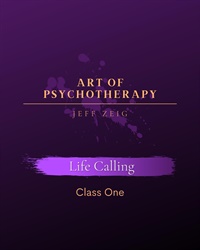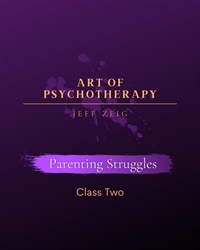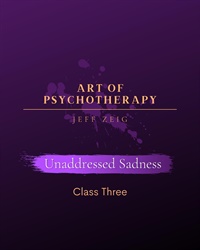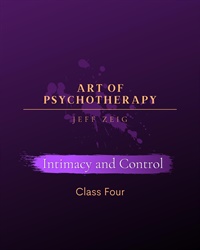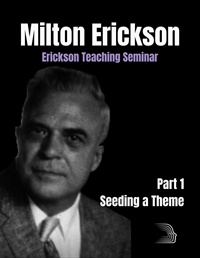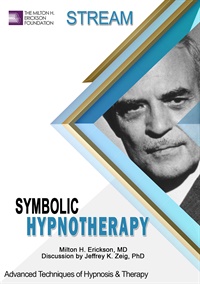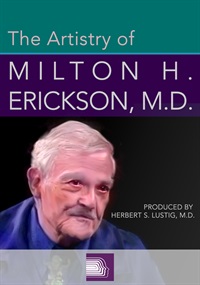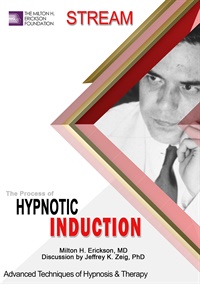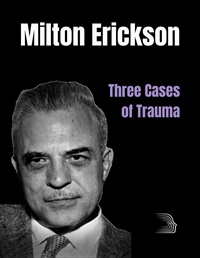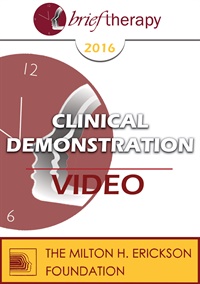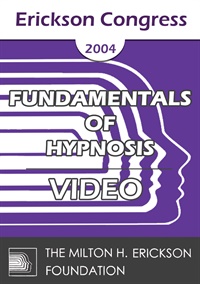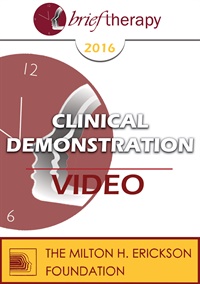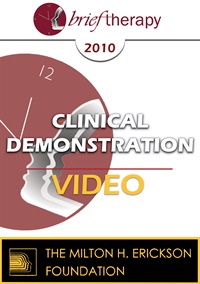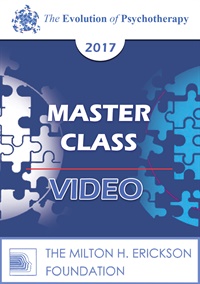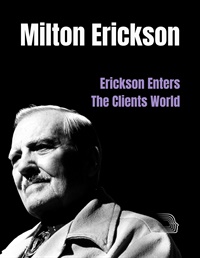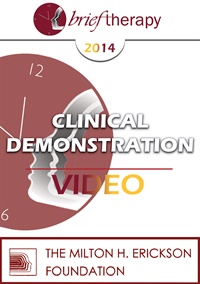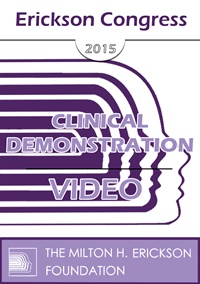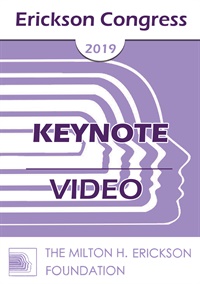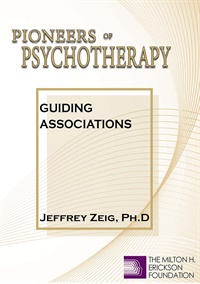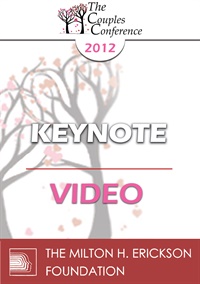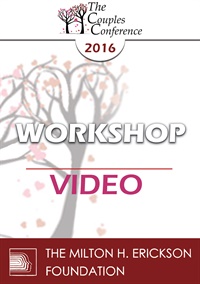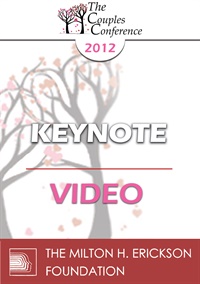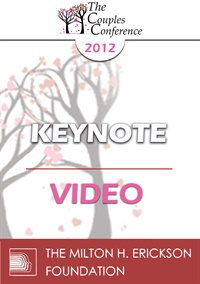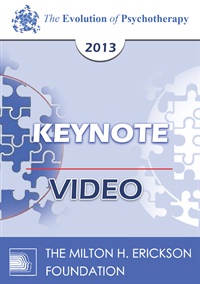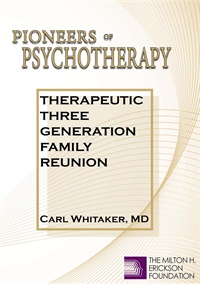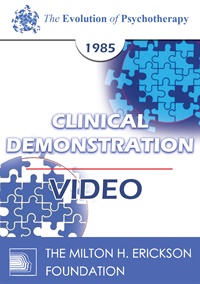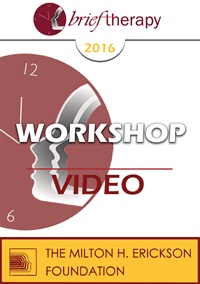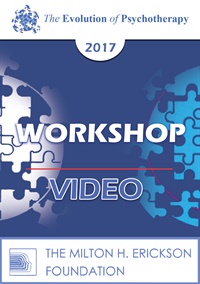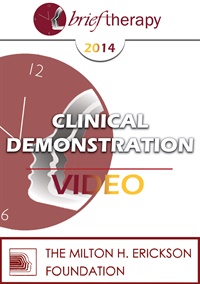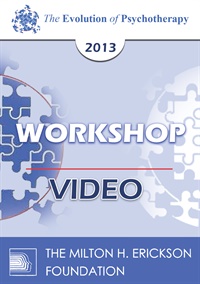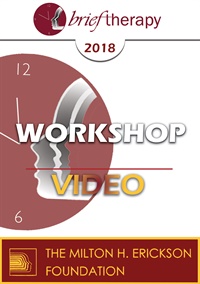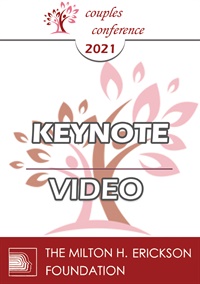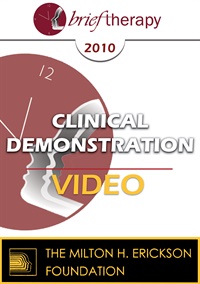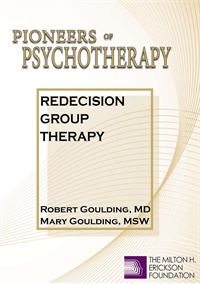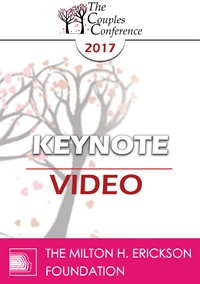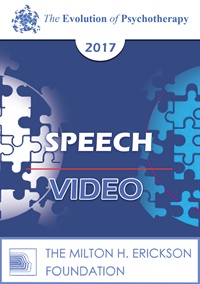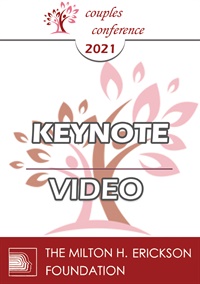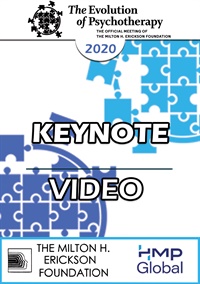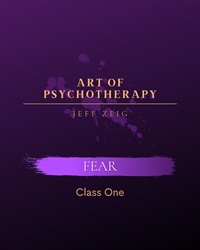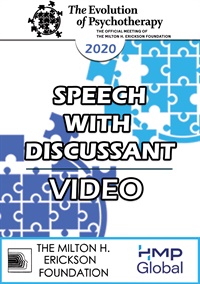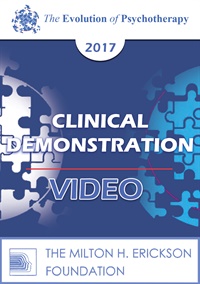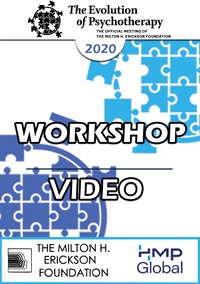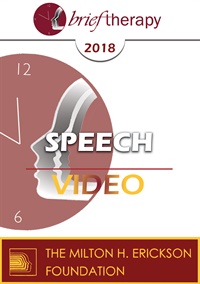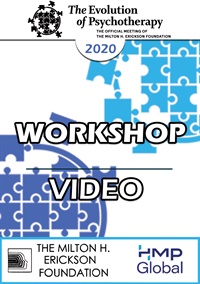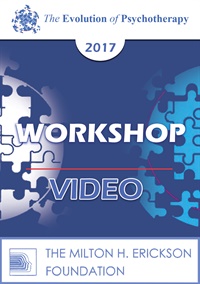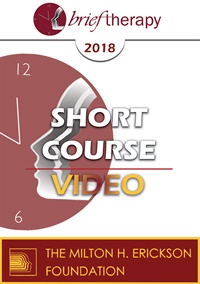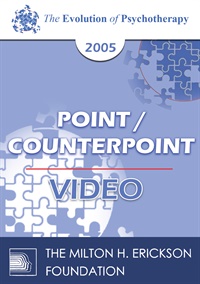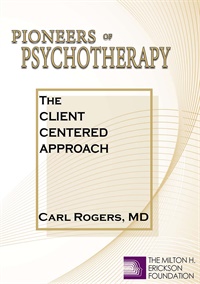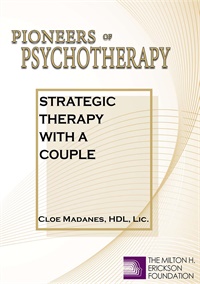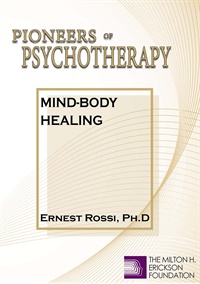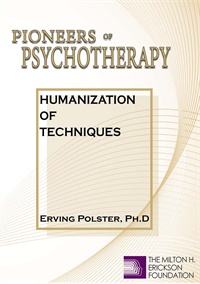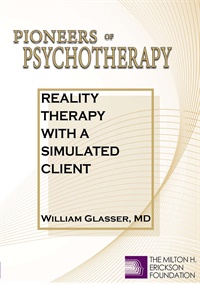Clinical Media Library
For over 40 years the Erickson Foundation has pioneered cutting edge therapeutic continuing education. Through the Erickson Foundation's live events, we've been able to build an incredible catalog of high quality lectures, keynotes, workshops and presentations. We have over 800 videos and over 2000 audio products available in the following categories:
- Milton Erickson
- Hypnosis
- Ericksonian Hypnosis and Therapy Techniques
- Common Clinical Issues
- Featured Therapy Models
- Couples Therapy Approaches
- Family Therapy Approaches
- Therapist Development
- Personality Disorders
- Pioneers of Psychotherapy
- The Conference Collections
- Speaker Index
- Topic Index
- World Languages

New Releases
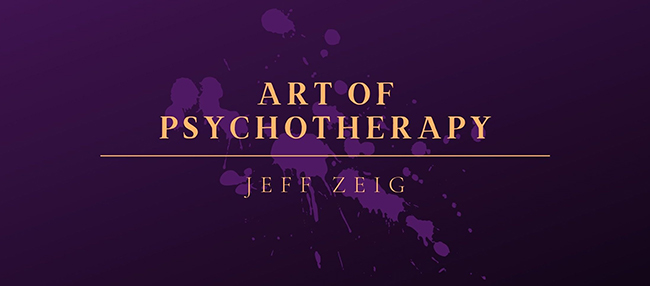
"It is not about choosing the right words but the way we make simple concepts come alive
through using the rich tapestry of potentials in verbal and non-verbal communication." ~ Jeffrey K. Zeig. PhD
Learn by living a brief session of psychotherapy. The Art of Psychotherapy classes feature live demonstrations of psychotherapy sessions in which Dr. Jeffrey Zeig implements various approaches to common patient issues. Understand how to prompt your client to realize hidden potentials and learn techniques that will guide you into perfecting your own style of therapy.
Milton Erickson
Milton Hyland Erickson was an American psychiatrist who specialized in medical hypnosis and family therapy. He was the founding president of the American Society for Clinical Hypnosis and noted for his approach to the unconscious mind as creative and solution-generating.
The Ericksonian approach departs from traditional hypnosis in a variety of ways. While the process of hypnosis has customarily been conceptualized as a matter of the therapist issuing standardized instructions to a passive patient, Ericksonian hypnosis stresses the importance of the interactive therapeutic relationship and purposeful engagement of the inner resources and experiential life of the subject. Dr. Erickson revolutionized the practice of hypnotherapy by coalescing numerous original concepts and patterns of communication into the field.
Hypnosis
What is Clinical or Therapeutic Hypnosis? Hypnosis is an approach used by licensed and trained clinicians for treating psychological or physical problems. This process typically is started through the use of a hypnotic induction, which creates an altered state of consciousness commonly referred to as trance. During the patient's trance state, their conscious mind is relaxed, allowing the subconscious mind to be accessed. This can allow the therapist to cultivate inner resources, skills, or abilities that may otherwise be unavailable to the conscious mind for one reason or another.
Ericksonian Hypnosis and Therapy Techniques
In contrast to many traditional schools of therapy, Ericksonian therapy is not a systematic set of procedures or treatment protocols, but rather a constellation of principles that guides the therapeutic process. The core of Ericksonian psychotherapy is the permissiveness between practitioner and the client, which makes it difficult to define. While the roles of practitioner and client remain distinct, neither are constricted by orthodoxy or protocol; rather each are free to explore any ethical direction or possibility, elicited through the process of therapeutic discovery.
Couples Therapy Approaches
Couples therapy, also known as marriage counseling, is designed to help couples restore love, intimacy and meaningful connection. There are a variety of approaches that can be used to repair the relationship, including addressing patterns of lies and deception, feelings of being attacked and isolated, and more.
Family Therapy Approaches
Family therapy is a branch of psychology that works with families and couples in intimate relationships to nurture change and development. It tends to view change in terms of the systems of interaction between family members.
Common Clinical Issues
Therapists help people with a variety of everyday concerns. Sometimes those concerns relate to the individual, such as anxiety, depression, insomnia, and job related stresses. Often there are concerns surrounding their interpersonal relationships, whether that appears as marriage difficulties, lies and deception, or abuse. The Erickson Foundation offers a number of strategies to deal with diverse issues.
Featured Therapy Models
Some therapists blaze their own path. Whether you want to study Aaron Beck and his contributions to Cognitive Behavior Therapy, or Sue Johnson and the Emotionally Focused Therapy model, or Family Constellations that Bert Hellinger pioneered, the Erickson Foundation has a deep collection of specific therapeutic models.
Therapist Development
This collection focuses on specific ways that you can improve your therapeutic practice. Whether that means incorporating a more artistic approach, managing homework assignments, improving empathy, or increasing creativity, you'll find a wide array of inspiration here.
Personality Disorders
Often clients may want help with specific personality disorders.
Pioneers of Psychotherapy
Pioneers of Psychotherapy is a collection of training videos featuring renowned clinicians who have made seminal contributions to the field of psychotherapy. Most of the major contemporary disciplines are represented in clinical demonstrations and discussions.
The Conference Collections
The Milton H. Erickson Foundation, Inc., is a federal nonprofit corporation, formed to promote and advance the contributions to the health sciences made by the late Milton H. Erickson, M.D. The Foundation organizes educational conferences designed to share and explain state-of-the-art methods, while refining and enhancing clinical skills.
The International Congress on Ericksonian Approaches to Hypnosis and Psychotherapy (began in 1980)
The Brief Therapy Conference (began in 1988)
The Couples Conference (began in 1995)
The Evolution of Psychotherapy (began in 1985)



